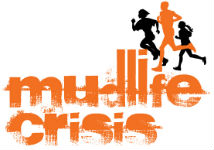As much as we all try to eat right and in a way that we know works for us, there are times when we simply get in the mood for a little detour from the plan that has served us right for so long. And before we know it, our mood shifts sharply to the bad from the good.
Sure, we can get a sudden rush from eating junk food. It’s full of sugars and such and can temporarily lift us via that rush of what one of my nutrition mentors, Nora Gedgaudas, calls an influx of dietary “rocket fuel.” But soon after, when that sugar rush vanishes into a morass of bonking, high-carb flu, and alarming bathroom trips, your body tells you to knock it off.
But the other side to these forays into the world of the standard American diet, one that is frequently misunderstood, is the neurological effect of food the food we eat.
Many people like to believe that psychological issues like depression, anxiety, stress, and other such negative stuff can only be dealt with via therapy or psychiatric drugs and other treatment. But most folks who have undergone a dietary cleanse/on-ramp-type program will tell you (if they did it right, that is) about how such programs lift the mood and clear the mind of some of the clutter and chatter, and are a big part of the reason that such plans can be so effective. They not only make you feel good from the weight loss factors, but they also make you feel good from the mental factors.
This was the experience I had when I first tried the Primal Blueprint plan as taught by Mark Sisson back in 2008. Most of you probably have heard of this plan at this point, but for those who haven’t, it’s a modified “Paleo” type diet where you eschew grains, legumes, industrial seed oils, sugar, and you vastly cut down the amount of carb-rich food you take in. And it worked (and continues to work) great for me. I reset my body to thrive off a higher-fat, lower-carb diet, and cleared out toxins from my body. And as a result, I lost weight, gained mental clarity, and felt energized and started to crave more life-affirming activities (and that led me to obstacle racing).
But here’s the tough part: my body and my mood became much more sensitive to things like sugar, wheat, industrial oils, and more.
Having reset my body to a more natural state, the effects of modern foods took its toll much harder than it ever did before.
So now, when I have a cheat day or a sugary snack (oh, curse you, you devilish Reese’s Peanut Butter Cups), it hits me hard. And it doesn’t just hit my gut or bowels, it affects my brain and most especially my mood. And if you’re in a point in your life where stress is hitting you a little harder anyway (just via the regular ebbs and flows of being a person in the modern, constant low-level stress-filled world), it can be even tougher.
One of the things that has come out in recent years is that the body, when it is under stress, tends to crave sugary foods. The human body responds to stress by cannibalizing protein and amino acids to create glucose (sugar) to give the body quick energy for a fight-or-flight response. Once the fight-or-flight response is no longer needed (i.e. the stressful situation is over because we rescued our child from the wolf or escaped the bear or whatever), that response goes away. But… in our modern society with lots of little stress, that craving for carbs is ongoing. And carbs (which all break down to sugar in the gut) cause stress, as well.
So here’s what’s happening: stress happens, which causes us to crave sugar. Sugar is eaten, which causes stress. Then we eat more sugar, which continues that cycle.
In a world where carb- and sugar-rich food is rarely available, like our pre-agricultural ancestors evolved in, that wasn’t an issue because there was no vending machine to grab Doritos from and continue that cycle. But now, it’s easy to do (in fact, it’s easier than eating something healthy instead because healthy food is so hard to get).
I am just getting over a few days of anxiety and mood swings that were brought about by some extra stress at work (just the typical projects and such), and that stress led me to the vending machine because I ran out of healthy snacks at work. And it really just deteriorated fast – to the point where I ate stuff like Hostess Cupcakes that I haven’t touched in years. Not good at all.
But here’s the awesome part: once you’ve done an on-ramp program, like the Primal Blueprint, a Whole30, or what have you, returning to that more relaxed, healthy state is easier with just a little willpower. Your body wants to return to fat-burning, its natural state. I passed on the sugar all day yesterday, ate meat and veggies for all my meals, and made sure that I had healthy snacks in my office to give myself an option to the vending machines or our treacherous basement deli.
And starting last night and continuing into today, I feel awesome. I had fun with my kids, I did my workout this morning, got stuff done in the early morning hours, and I am still feeling great as I write this post up. My mood is light and I am more resilient to the everyday stress that I am encountering.
So here’s the lesson:
- If you haven’t done it yet, do some sort of dietary cleanse/on-ramp program. I personally got a lot out of the Primal Blueprint and have seen evidence that Paleo-type on-ramps are the most effective, but anything where you’re clearing out grains, legumes, sugar, and industrial seed oils is going to be helpful.
- Keep healthy food in your house and with you wherever you need them to take care of cravings. Instead of eating sugar, grab some carrots or a handful of nuts or beef jerky or what have you.
How about you? Have you noticed that food affects your mood? Share your story below, and please share this post with your friends and loved ones!







